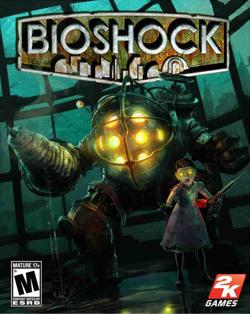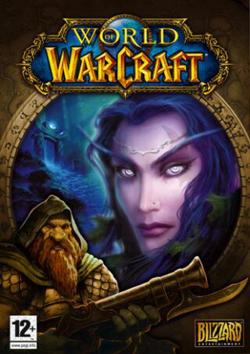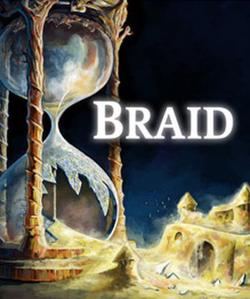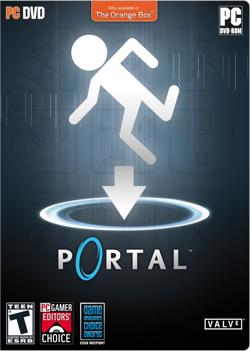Crash Course: Top Five Games to Increase Your Gamer Literacy
Are you on the fringes of gaming? Do you want to get in deeper, but find yourself unsure where to start? Do conversations with experienced gamers leave you feeling lost? Is “sorry, but our princess is in another castle” your freshest gaming joke? When it comes to gamer culture, are you on the outside looking in?

Have no fear: Doctor Professor is here!
The following five games will not only immediately establish your gamer cred, but will help you understand the state of modern gaming and equip you to follow and participate in the big discussions.
These games all exemplify important gameplay mechanics and/or major design trends. These are the games that get referenced, parodied, and imitated. They aren’t necessarily the five best games out there right now, but they are all very good at what they do, and handily they all have a low-punishment design philosophy.
Be advised that the gaming zeitgeist moves quickly, and this list would have looked completely different a few short years ago, and will certainly look completely different a few years hence. Also, gaming is broad, with many genres not represented here, but playing through this list will leave you well prepared to understand what we talk about when we talk about gaming.
It’s just a starting point, of course, and there are many other quality games out there that can help bring you into gaming’s inner circle. Here, in fact, are a few honorable mentions that didn’t quite make the top five:
Gears of War by Epic Games, available on PC, Xbox 360
Plants vs. Zombies by PopCap Games, available on Mac/PC
Megaman 9 by Inti Creates, available on PS3, Wii, Xbox 360
Canabalt by Semi Secret Software, available on iPhone and iPod Touch (or play the flash version for free!)
Okay. Let’s do this.

Number Five: Rock Band 2
- Developed by: Harmonix Music Systems
- Available on: PS2, PS3, Wii, Xbox 360
- Gameplay: Peripheral-based music game in which players sing or play simplified drums, bass, or guitar, following on-screen cues and accompanied by popular songs.
- Sample Videos: Full-Band, Drums, Vocals and Guitar
Harmonix was founded in 1995 with “the idea of using technology to allow non-musicians to express themselves musically”. Their first major games, Frequency and Amplitude, were award-winning critical darlings with cult followings, but poor sales. They did garner some attention, however, and soon Konami approached Harmonix and suggested Karaoke Revolution, which became their first major hit, and the franchise continues to this day.
A bit later, Harmonix was approached again - this time by RedOctane, a peripheral manufacturer, who suggested that they could make guitar controllers and Harmonix could make the game to go along with them. And thus Guitar Hero was born. Sales snowballed from month to month, and meanwhile Activision aquired RedOctane, and MTV Networks acquired Harmonix.
Previously, music games and peripherals had both been niche markets. But Guitar Hero began to change that - and Rock Band finished the job: even as Activision continued releasing Guitar Hero games developed by their subsidiary Neversoft, Harmonix brought their guitars and karaoke together, and threw in drums for good measure, creating a four-player full-band experience.
It sold incredibly well, prompting Guitar Hero to reconfigure itself as another full-band experience. The effect on the music industry was huge - bands whose songs were included in the games had their sales shoot up, often by a factor of two or three. Aerosmith made more money off of Guitar Hero Aerosmith than any of their albums. Music games exploded into pop culture, garnering a South Park episode and various viral videos.
With all the Guitar Hero and Rock Band games out there now, some are beginning to question whether the rhythm game market is becoming oversaturated with a flood of near-identical titles. But the pending release of the Rock Band Network may well turn things on their head once more:
[CNNMoney:] You’re also releasing Rock Band Network, which will allow songwriters to upload their own music that can then be played in the game.
ALEX [RIGOPULOS]: The model in the past has been us licensing music. Now we want another platform that will help any band in the universe to get onto the Rock Band platform.
ERAN [EGOZY]: We’re changing the way the music industry is working, and we’re hoping there’s going to be this big community around it.
ALEX: By blowing it open so that any musician can get on this platform, it changes the way the world perceives what we do, which is now just an expected part of music entertainment. If there’s a band you love that releases a new album, you’re not only going to want to go see them in concert or listen to them on your iPod, you’re going to want to play with that music. Launching Rock Band Network is a way for us to open new fundamental form of music entertainment.
ERAN: One thing we’re proud of: If you look back to 1995 and read the mission statement of our first business plan, it’s exactly the same as it was today, which is to enable everyone the experience the joy of making music.
—Maggie Overfelt, How ‘horrendous failure’ led to Rock Band
What the future holds for music games is anyone’s guess, but clearly the influence of Guitar Hero and Rock Band is a force to be reckoned with, and best understood by experiencing it firsthand.

Number Four: Bioshock
- Developed by: 2K Games
- Available on: Mac, PC, PS3, Xbox 360
- Gameplay: FPS with RPG elements, taking place in an underwater steampunk city.
- Sample Videos: Trailer (warning: graphic!), Combat
In 1999, a game called System Shock 2 launched to incredible critical praise - and poor sales. It won many “Game of the Year” awards, but commercially it remained a cult hit at best. Looking back, it is considered to have been extremely influential and far ahead of its time.
That game’s developers now work for 2K, and in 2007 they released what is widely considered its spiritual successor: Bioshock. This time, they achieved both critical and commercial success.
Any examination of choice and morality in video games will inevitably turn its focus to Bioshock. (I’ve certainly shown this tendency myself, and I’m not the only one.) Regardless of how effective a deconstruction you consider it to be - and opinions certainly vary - Bioshock undeniably forces the player to consider questions of choice, agency, freedom and autonomy. Doing so in such a blatant but artful way, in a game with this level of critical and commercial success, makes Bioshock the unavoidable centerpiece of discussions on these topics.
Why does this matter so much? Choice and morality are some of the most contentious parts of the games-as-art debate. When someone says games aren’t art - or at least not “high” art, whatever that means - and someone else comes back with a specific counterexample, odds are pretty good it’ll be Bioshock.
“To be honest, [game developers are] still in that early silent movie phase where we’re trying to figure out exactly what we’re doing, how we tell a story, how we present gameplay that’s married to storytelling, that’s not a parallel process. I think BioShock is a good example of trying to move the ball down the field.”
—Ken Levine, as quoted in Bioshock: Ain’t Rapture Grand?
If the masses are to be convinced that video games are just as valid an art form as any other medium, it’s going to be innovative and mature ways of handling choice and morality that will do the convincing. Consequently, choice and morality are more scrutinized than just about any other aspect of gaming, and a familiarity with Bioshock will be of tremendous help in navigating the conversation.

Number Three: World of Warcraft
- Developed by: Blizzard Entertainment
- Available on: Mac/PC
- Gameplay: MMORPG in a fantasy environment based on the Warcraft universe.
- Sample Videos: E3 2004 Gameplay Trailer, E3 2005
Blizzard has one of the strongest brands in the industry today, with an incredible track record of entering a pre-existing genre and making it their own. There were RTS games before Warcraft, dungeon crawlers before Diablo, and MMORPGs before World of Warcraft, but Blizzard’s franchises are now the inevitable bases of comparison for any new games of these types. Blizzard has a strong focus on fun and quality - and they are not afraid to cancel a game that doesn’t meet their high standards. They also have a strong history of post-release support - Diablo II, released in June of 2000, still has major patches coming as of December 2009. Because of these factors, Blizzard’s brand is strong enough to support an annual convention, BlizzCon, the tickets for which have a tendency to sell out in mere minutes.
World of Warcraft (or WoW), released in late 2004, quickly took over the MMORPG market. By April 2008, WoW was estimated to hold 62.2% of the subscriptions market (with Runescape in second place with 7.5%). It reached 11.5 million users in December 2008.
“We were figuring that WoW would be another blockbuster, and we’d just move on to StarCraft II. I certainly did not expect it to have such a transformational effect on our company and the industry as a whole.
Before we launched WoW, Blizzard had a staff of 700-800. Now, we’re north of 4000. Almost all of it is support for WoW.”
—Blizzard’s VP of Game Design Rob Pardo, as quoted in Five Years of Warcraft: Speaking With Blizzard’s Rob Pardo
I recently had occasion to explain this blog to my grandmother. When my cousin overheard me say that I write about video games, she made a face. “Like World of Warcraft?” she asked. “My boyfriend plays that all the time. I hate it.” He had even brought his desktop computer to a cabin they had rented in the mountains, so that he would not miss a raid during their vacation. Oh well, I thought. So much for impressing my little cousin with my hip gaming blog.
Like it or not, WoW is what non-gamers think of when they hear the term “video game.” Its pop-cultural presence is huge, with a South Park episode that actually won an emmy. Not to mention the commercials.
WoW successfully mainstreamed the MMORPG. This is the game that everyone has heard of - the one that people who don’t game think you must play if they know you like games. And for a pretty large segment of the population, they’re right.
To an outsider who has never spent much time in an MMORPG, the appeal of games like WoW can be deeply mysterious. The experience of making friends in this context and banding together to accomplish goals is difficult to convey in words, and nearly impossible to imagine for someone who hasn’t occupied this sort of virtual world. But there is something real and powerful going on here. It underlies the incredible growth of online and social gaming, and it’s worth trying to understand. The teamwork, problem-solving, communication, and leadership skills required in WoW may even translate to successful business leadership.
For those curious what all the fuss is about, but not wanting to commit to a month’s subscription or more, a nearly-free fourteen-day trial is available.

Number Two: Braid
- Developed by: Number None, Inc.
- Available on: Mac, PC, PS3, Xbox 360
- Gameplay: Puzzle-heavy side-scrolling platformer based on time manipulation.
- Sample Videos: Gameplay Trailer, Level Montage
With self-funded development steered over three years by the singular vision of Jonathan Blow, Braid is the standard-bearer for the rise of the indie game developer. As the internet brings the means of production and distribution into the hands of the masses, we’re seeing a rise of what is, in some ways, a return to gaming’s roots: smaller, simpler games developed by small teams with small budgets. As the infrastructure of large developers and publishers becomes less and less necessary, more and more developers are going indie.
“[Cliff] Harris is one of an increasing number of mainstream video game veterans who have abandoned big-budget, big-business game development and ‘gone rogue’ as small, self-funded, often self-published independent game developers, or ‘indies.’ Some see indie development as an entry point into a career in the majors. But for some jaded professionals who love gaming but are dissatisfied with the mainstream industry, indie development offers an escape - and a unique opportunity.”
—Jay Barnson, Going Rogue
As of this writing, Braid is the ninth-highest rated Xbox 360 game, beaten only by extremely high-profile AAA titles. Braid’s success makes it the de facto poster child of the rising indie game movement (even though most solitary developers can’t afford to pour three years and two hundred thousand dollars into their pet projects).
Braid is more than that, however. It’s an exquisitely crafted gem, with a soundtrack of beautiful music licensed from Magnatune, and gorgeous visuals by David Hellman of the tragically-defunct A Lesson is Learned But the Damage is Irreversible. The time-twisting, mind-expanding gameplay is a shining example of high challenge with minimal punishment - a trend I’ve argued we’re seeing more of as time goes by. The cryptic, melancholy story may or may not be your cup of tea - but at least you’ll know what people are talking about when they speculate on the identity of the Princess and the nature of Tim’s relationship to her.
It’s also the inevitable comparison for any game that involves time-manipulation, especially if it includes a rewind. When I told my friend Iceman about Ratchet & Clank Future: A Crack In Time’s time-manipulating gameplay, his response was simple: “Braid.” Braid is far from the first game to use such mechanics, but it runs farther with them than most, and at the moment it is the most iconic.

Number One: Portal
- Developed by: Valve Corporation
- Available on: PC, PS3, Xbox 360
- Gameplay: First-person puzzle game based on teleportation.
- Sample Videos: Teaser Trailer, Portal Test 02
Valve rose to prominence in 1998 with its very first game, Half Life. Half Life holds the Guinness World Record for best-selling first person shooter of all time, and started Valve on a so-far unbroken line of well-received, varyingly revolutionary FPS games. Much like Blizzard, Valve is known for releasing only good games. Their secret? Aggressive testing and iteration.
“Every week (or any time we created a significant new piece of content), we would bring in someone that hadn’t played the game before. We’d sit them down, tell them to play the game just as they would at home, and then watch them play from beginning to end.
Actually observing someone play your game gives you much more information than simply having them fill in a questionnaire after they’ve finished playing. You can clearly see when a player is having fun, is confused, happy, sad – everything. Watching them lets you monitor their moment-to-moment experience. This instant feedback was invaluable for tuning the game in addition to uncovering plenty of code bugs.”
—Jeep Barnett, Kim Swift, Erik Wolpaw, Thinking With Portals: Creating Valve’s New IP
Valve is also famous for their content delivery platform: Steam. Launched in 2003, Steam was one of the first major digital distribution networks for PC games, and remains the most popular: it is estimated to hold 70% of the market. Digital distribution is far cheaper than physical distribution, and as more and more consumers gain access to high-speed internet, it will become a larger and larger component of gaming sales. The consoles have their own proprietary networks, while there is open competition on the PC - but for now, Steam owns by far the biggest piece of that pie.

Much can be and has been said about Portal’s success as a game. It’s well-crafted in virtually every regard. Here’s what the notoriously negative Yahtzee had to say about it:
“If you’re a regular viewer, you’ll understand how insane these words feel coming out of my mouth, but I can’t think of any criticism for it. I’m serious; this is the most fun you’ll have with your PC until they invent a force-feedback codpiece. I went in expecting a slew of interesting portal-based puzzles, and that’s exactly what I got, but what I wasn’t expecting was some of the funniest pitch-black humor I’ve ever heard in a game.
Okay, it’s only two to three hours long, but that’s a good length for it; it means it doesn’t outstay its welcome and it narrows the gap between you and the balls-tighteningly fantastic ending. Absolutely sublime from start to finish and I will jam forks into my eyes if I ever use those words to describe anything else ever again. Yeah, I know it’s not very funny to love a game, but fuck you! Portal’s great and if you don’t think so, you must be stupid.”
—Ben “Yahtzee” Croshaw, Zero Punctuation: The Orange Box
Besides just being very good, as well as perhaps the most-referenced game right now, Portal is a clear-cut example of game as learning device, using instructional scaffolding to teach the player to properly manipulate the game’s mechanics, which must be correctly applied to achieve victory.
“[Portal] spends approximately half the game introducing players to the mechanics and strategies they must employ during the game’s post-Victory Incandescence finale. The ’new mechanic -> application -> reward’ formula that Portal uses is so immensely satisfying that players feel like they are picking apart brain teasers when they are actually following a rather thick trail of bread crumbs left by the designers.”
—Rob Zacny, The Incredible Disappearing Teacher
Portal’s purity as this kind of example is enhanced by its short length and laser-like focus. Portal strips away unnecessary elements, boiling the game down to a satisfying core. The result is a game that lasts only a few hours, but is consistently enjoyable across its entire duration.
Not every developer is willing to risk this approach - the 3D Sonic the Hedgehog games famously add strange gimmicks to the run-fast-across-awesome-levels gameplay core.
“I asked one of the developers at TGS, you know I was like, come on everybody just wants Sonic running, like what’s up with the werehog? And he was like, well, here’s the deal… he runs at this miles per hour, kilometers per hour, and he laid out all of the statistics on how fast this hedgehog goes, and he was like in order to make a game where Sonic is running and everybody enjoys the whole thing we’d have to design this many miles of level, and it was some ungodly number. And he’s like and that would be like maybe a three hour game and I was like wow, well that kinda stinks and he’s like yeah, so we gotta do this other stuff.”
—David Clayman, as quoted in Sonic Team Unleashes the Reason Sonic Doesn’t Just Run Any More
Being short certainly didn’t harm Portal’s sales or critical reception, and being focused helped tremendously. As long as game developers can learn from example, this is a trend which will grow.
“You don’t want to overstretch. You want to do less, but do amazingly well, rather than do more and have a load of average stuff at the end of the day. There are too many games out there that deliver lots of average content.”
—Sefton Hill, as quoted in Rocksteady’s Sefton Hill Unmasks Batman: Arkham Asylum
(Batman: Arkham Asylum, incidentally, won a Guinness World Record for “Most Critically Acclaimed Superhero Game Ever”.)
By focusing on a few perfectly-realized elements, Portal demonstrates the essence of the modern video game. This is the game to play to see where the zeitgeist is and where it’s heading. It’s what games are, as well as what they should be.